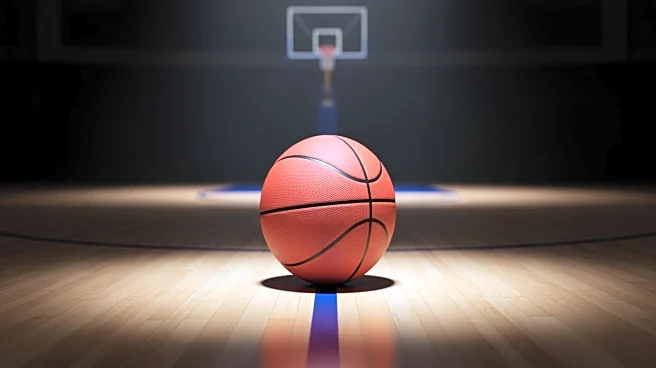What's Happening?
Michael Ray Richardson, a former NBA player known for his exceptional skills and four-time All-Star status, passed away at the age of 70 in Lawton, Oklahoma. Richardson, who was nicknamed 'Sugar,' had
a notable career with the New York Knicks, Golden State Warriors, and New Jersey Nets. He was recognized for leading the NBA in steals three times and was named the 1985 NBA Comeback Player of the Year. Despite his achievements, Richardson faced challenges, including a ban from the NBA in 1986 due to drug policy violations. After his NBA career, he played in Europe and coached in various leagues, contributing to basketball camps for underserved communities.
Why It's Important?
Richardson's passing marks the loss of a significant figure in basketball history, known for his talent and resilience. His career serves as a reminder of the impact of personal challenges on professional athletes. Richardson's story highlights the importance of redemption and the ability to overcome adversity, as he continued to contribute to the sport through coaching and community engagement. His legacy may inspire discussions on the support systems available for athletes facing similar challenges, emphasizing the need for comprehensive health and wellness programs within sports organizations.
What's Next?
Richardson's death may prompt tributes from the basketball community, celebrating his contributions and influence on the sport. His life story, including his book 'Banned: How I Squandered an All-Star NBA Career Before Finding My Redemption,' may gain renewed interest, offering insights into his journey and the lessons learned. The basketball community may also reflect on the importance of addressing substance abuse and mental health issues among athletes, potentially leading to initiatives aimed at providing better support and resources.
Beyond the Headlines
Richardson's life and career underscore the complex relationship between sports, personal challenges, and redemption. His story may encourage broader discussions on the ethical responsibilities of sports organizations in supporting athletes beyond their professional careers. Additionally, his contributions to community basketball camps highlight the role of sports in fostering social change and providing opportunities for underserved populations.










